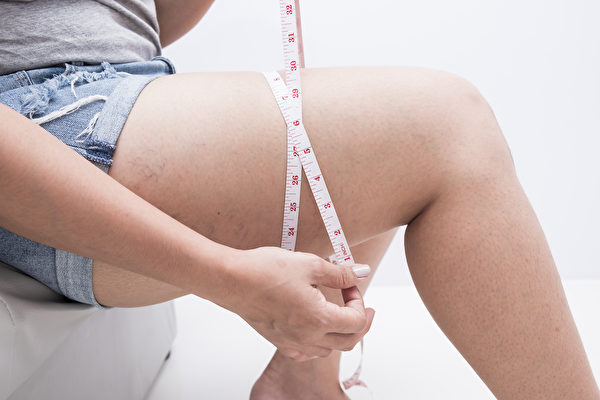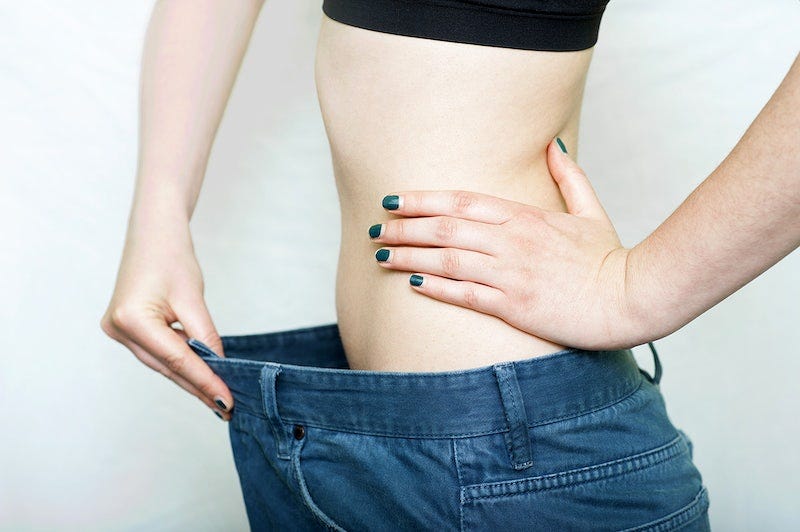Obesity is a problem for many people. Why can’t they lose weight even though they have eaten very little?
Why is there not much change in lifestyle, but unknowingly become fat?
The thighs and buttocks especially meaty people may be due to hormonal imbalance, and in-depth analysis of many people “can not be thin”reasons.
Why don’t you lose weight?even though you eat less and move more?
Most people’s concept that obesity is to eat things are not consumed, in the body to store up, every stored 7700 calories will be exchanged for a kilogram of body weight. But in fact, this is not the state we often see, some people even if they deliberately eat less, more exercise, but the weight is still not moving.
There are many reasons for the formation of obesity, such as genes, genes affect part of the body’s metabolic pathway of energy, and there is also part of the cause is the influence of lifestyle.
The following are the causes of obesity:
- Hormonal imbalance: Hormones include many, such as insulin, male and female hormones, stress hormones and thyroxine.
- Nutritional imbalance: the body needs a lot of nutrients to maintain body operation, when the body lacks these nutrients, the body’s operation may be stuck, into energy-saving mode, resulting in obesity.
- Lack of sleep
- Inflammation
- Toxins
- Bowel movement and gastrointestinal problems
- Insufficient muscle mass: Muscle is the most metabolically active tissue, and if muscle mass is insufficient, metabolism will naturally slow down.
Want to lose weight in “specific areas” but can’t?Hormones also affect the location of fat accumulation.
The reason why you can’t lose weight in certain areas is because fat accumulation is affected by genes, which is why people from the same family often have similar body types. In addition, fat accumulation is also related to “hormones”, hormones will affect the location of fat accumulation:
- “Cortisol overload” will result in a medium to wide abdomen.
- Excessive insulin will cause a waist and back type of figure.
- “Excessive testosterone” will result in a flabby-shouldered body.
- “Thyroid gland dysfunction” will result in a side-heavy body.
- “High female hormone” will result in a full-bodied figure in the buttocks and legs.
What is Hormonal Weight Loss?
People who are overweight do not necessarily have only one hormonal imbalance, as hormones affect each other, but if you know your hormonal type, you will be able to formulate different weight loss strategies for that type.
Hypercortisolism
It is recommended that patients with hypercortisolism should not go on too strict a fast or dietary restriction because such a restriction is sometimes a kind of pressure on the body, and it is also not suitable for doing too intense exercise, and they should consume more nutrients to help relieve stress, such as magnesium, B-complex vitamins, amyloid, South African drunken cigars and other nutrients that help relieve stress.
In addition, you can add some stress-relieving activities to your daily routine, such as walking, listening to music, massaging, and taking a bath.
High insulin type
Suitable for fasting, low-carbon diet or low-glycemic diet, patients with high insulin need to moderately reduce the intake of carbohydrates, so that insulin can be slowly lowered, because carbohydrates are more likely to cause a rise in blood glucose, which can easily cause blood glucose and insulin to remain high.
Hypothyroidism
People with this type of hypothyroidism need to make sure that the thyroid gland is functioning normally, so they need to consume nutrients that help thyroxine synthesis, such as zinc, iron, and antioxidant nutrients, and they also need to relieve stress and eat a well-balanced diet to improve the function of the thyroid gland and to bring back the metabolism.
Female Hormonal Overload
Diet and environment should be taken care of. Diet should be increased to help the liver metabolize estrogen, while the environment should be especially careful with plasticizers and fragrances.
High testosterone type
It is recommended to consult with your doctor to confirm whether or not you have polycystic ovaries, because generally speaking, testosterone is actually beneficial to weight loss, but if you have polycystic ovary syndrome, it will easily cause obesity.



